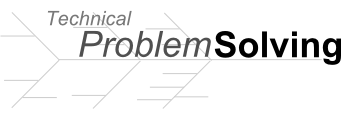My last post about types of solutions brought to mind an experience we had with Kaizen events.
The first Kaizen event tackled a quality issue with one of our analyses and implemented a rather complex solution, which while providing more accurate results, led to a much more complicated maintenance. The second Kaizen event focused on the maintenance complexity and ended up undoing the work of the first team to make the maintenance quicker and simpler. Two Kaizen events ended up with a net zero change in the analysis. Needless to say, this was discouraging as well as a waste of money.
How did this happen? The Kaizen teams were made up mostly of those outside the group and one technician from the lab. Neither team had any members in common. The teams also did not have anybody who understood the overall problem and therefore focused on the one aspect they were challenged with. They were successful at the details but not in the overall problem.
Ultimately the lab chemists and technicians looked at the problem together and realized that the issue was not with the analysis itself, but with the environment the analysis was being done in. Improving the conditions under which the analysis was being performed, ended up solving both issues.
The advantage of bringing those unfamiliar with the process into a problem solving situation is that they have a beginner's mind. The disadvantage is that they don't have a full understanding of the situation. Although their input is valuable, they can't be allowed to dominate the process over those more familiar with the problem.
Saturday, December 6, 2008
Subscribe to:
Post Comments (Atom)




No comments:
Post a Comment